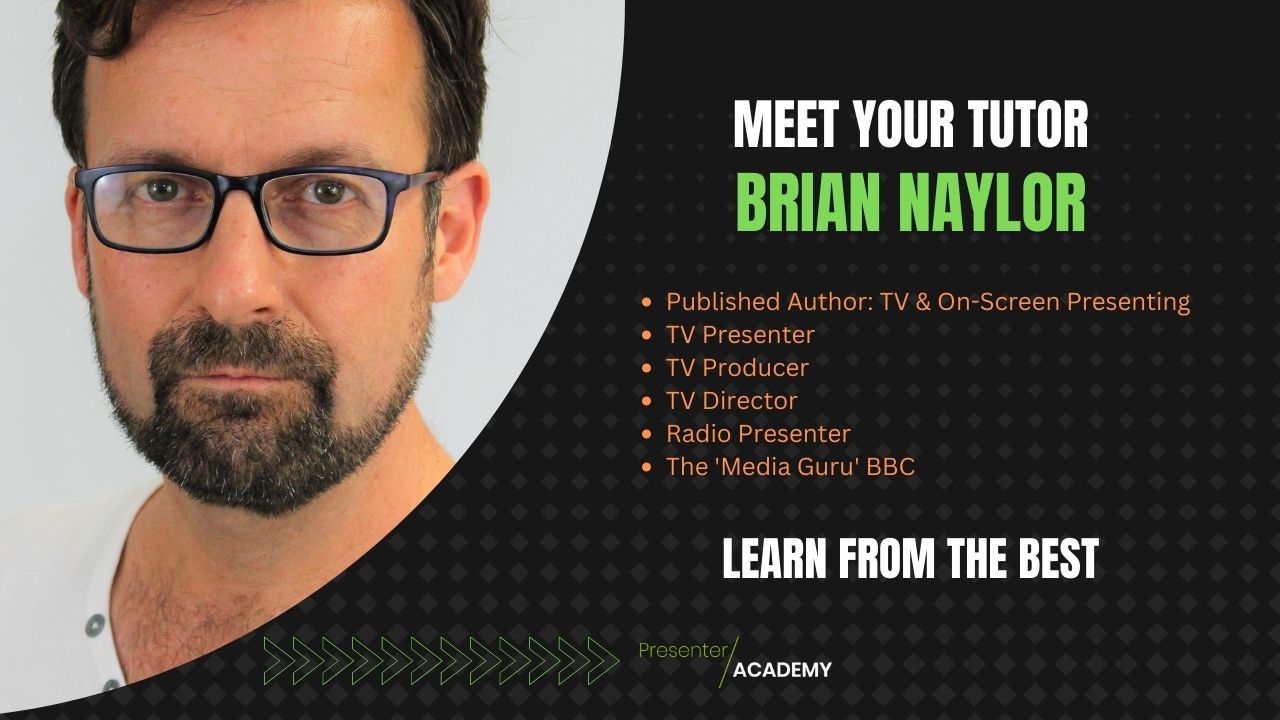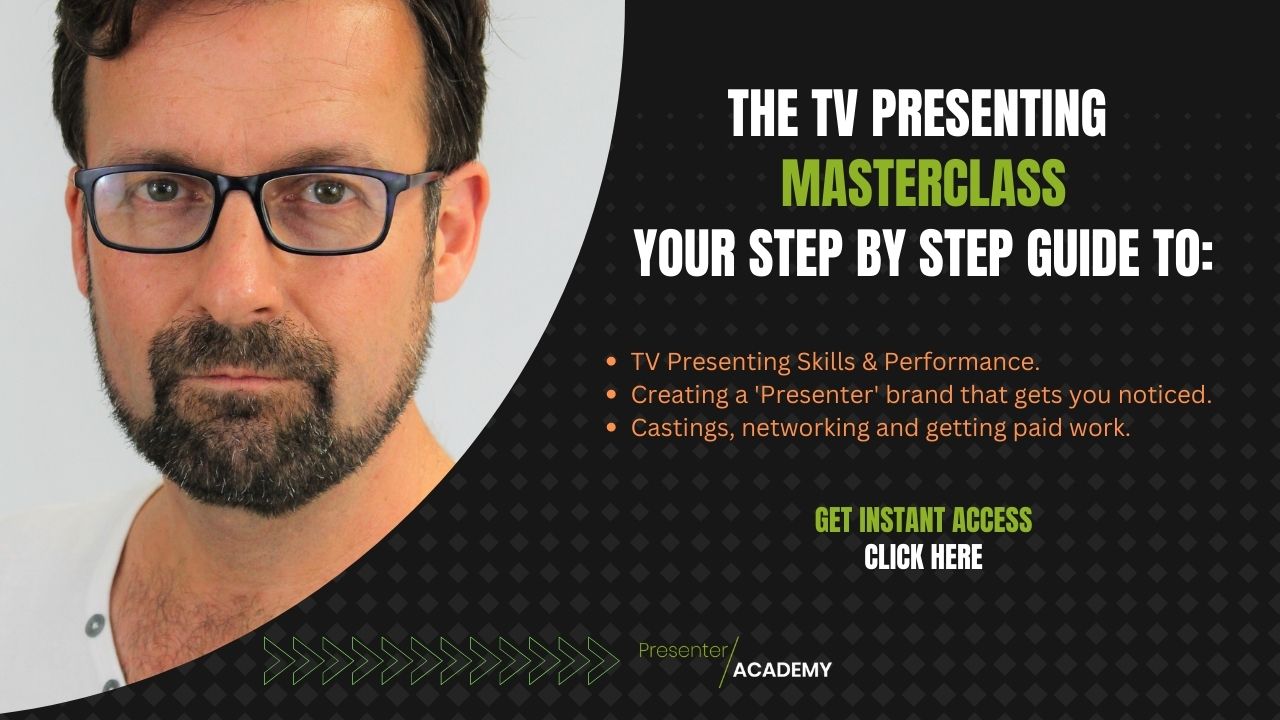How to become a TV Presenter
Nov 11, 202211 Nov 2022 - 4 min read
Becoming a TV Presenter might seem like a 'Pie in the sky' dream, but, if you approach it professionally like you would with any other high paying career you might be surprised with the amount of opportunities there are.
To avoid the many pitfalls, that can be costly in terms of money and wasted time, follow these three steps you won't go far wrong.

Step One: TV Presenting - The Performance
Make sure your on-screen presenting is up to scratch. Being natural, engaging and confident in front of the camera is an absolute must. If you look awkward or you appear not to be very interested in what you are talking about, then the audience will turn off. Television has a lot of competition, 100's of different channels, on-demand video and the socials mean that presenters have to have the ability to keep their audience engaged and watching.
A large part of the job is having a knack to making things interesting, interviews, reports and programme items are very often 'much of a nothing' so the presenter has to be able to find an angle or a spin to make it interesting. A TV Presenter also has to have the ability to forward sell upcoming programme content, keeping the audience intrigued and wanting to find out more.
As well as the performance side a TV Presenter must also be able to use the various tools and techniques needed to work in a TV Studio. This includes talkback, teleprompter, interviewing skills, hitting marks, up on 3 as well as location reports, walking and talking techniques and many more.
After nearly 30 years of training new presenters at Pinewood Studios, Fox Studios Sydney and 3 Mills Film Studios London I can tell you that this is where many new presenters go wrong, thinking that because it looks easy on television they'll be able to just 'wing it' at auditions, screen tests and on Demo reels. Successful presenters are generally the ones who have done their homework and prepared themselves by training for the job.
I've included the video above to help you get started with your performance and presenting skills.
Step Two: Create Your Brand or Niche
Being an expert, being known for something and having a unique style can be a real advantage when it comes to getting seen by TV producers and casting directors. If your social media, demo videos and even your own website shows you as the 'go to' presenter in your area of knowledge or interest then you stand a very good chance of getting noticed when positions come up for programmes in those areas. It doesn't mean that you can't apply for other types of work, you can put up profiles on Star Now and other casting websites like anyone else, but it makes you stand out.
You're going to need to have a dedicated YouTube or similar channel and be able to film good quality short video 'snippets' of you talking about various things within your niche. You'll also need to be able to write scripts properly and then do some basic video editing before you upload your content. If done correctly this will also help you build a following which many TV producers now like their presenters to have as it an easy way to promote the show.
Step Three: How to get TV Presenter jobs
Once you have your Brand and promotional materials right and your TV presenting skills are at a professional level you'll be ready to apply for castings and find opportunities in various ways, such as:
- Casting websites
- Social groups on LinkedIn & Facebook
- Networking events
- TV Presenter Agents
- Contacting TV Productions directly
- TV industry forums
Applying and contacting people in the right way is important but the opportunities are there if you know where to look.
If your promotional material is good and you're applying in the right way then you will be asked to audition for the role. In the first instance it's now common to be asked to send a 'self-tape', this is when you're sent a script or you may be asked to ad-lib something and film it at home. It's usually fine to film yourself with a phone but you can give yourself a real advantage If you set up you home filming with some very basic equipment and knowhow. Sending self-tapes that not only show your talent but also a professional understanding of the whole process will set you apart and give you a well above average success rate.
Are you ready to start your TV Presenting career?
To give yourself the best advantage and get ahead of the game I've created 'The TV Presenting Masterclass' a complete video, audio and written online content course with in depth explanation of:
- The performance of a presenter - Giving you that confidence to let your personality shine through while being engaging as well as all the techniques you need for interviewing, teleprompter, live studio and location work.
- Building your brand - How to self-shoot at a high level and use YouTube to gain exposure. This module also includes advanced forward selling and advance persuasive & influential presenting techniques.
- Career Strategy and how to get work - Full, in-depth guide to casting websites, agents and how to contact producers, with examples of letters a CV's and exactly how to put a winning demo reel together. This section also includes industry contact, events and networking.
Get instant access to The TV Presenting Masterclass and you'll be taken step by step through everything you need to know to become a TV Presenter.
Don't miss a beat!
New moves, motivation, and classes delivered to your inbox.
We hate SPAM. We will never sell your information, for any reason.


